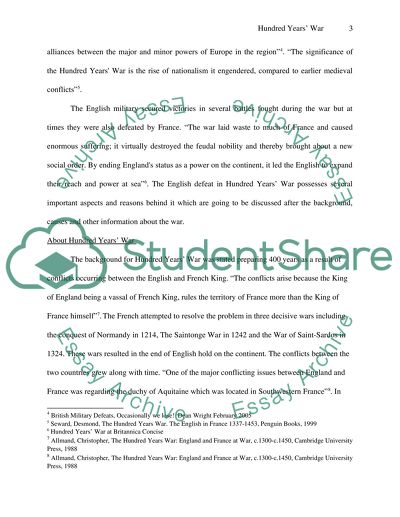Cite this document
(“Hundred Years War Essay Example | Topics and Well Written Essays - 2250 words”, n.d.)
Retrieved from https://studentshare.org/miscellaneous/1521295-hundred-years-war
Retrieved from https://studentshare.org/miscellaneous/1521295-hundred-years-war
(Hundred Years War Essay Example | Topics and Well Written Essays - 2250 Words)
https://studentshare.org/miscellaneous/1521295-hundred-years-war.
https://studentshare.org/miscellaneous/1521295-hundred-years-war.
“Hundred Years War Essay Example | Topics and Well Written Essays - 2250 Words”, n.d. https://studentshare.org/miscellaneous/1521295-hundred-years-war.


